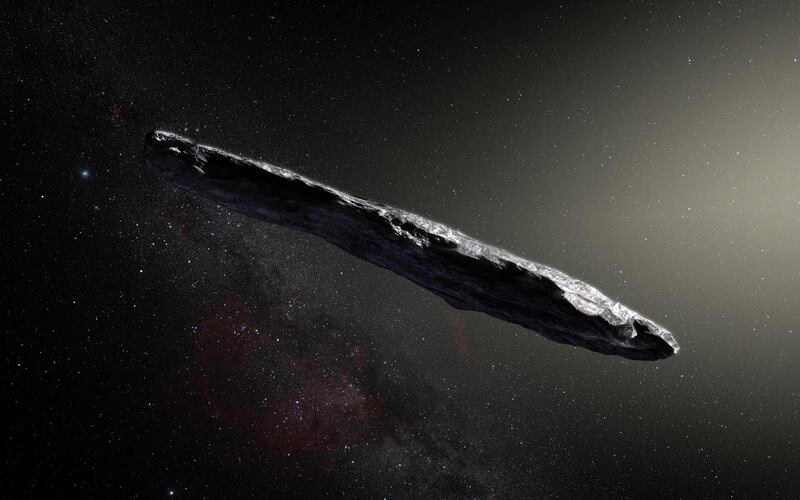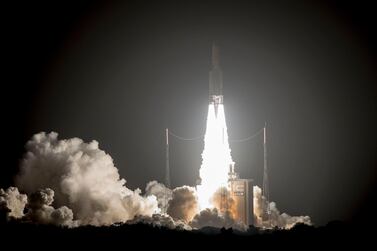The UAE is taking steps to regulate mining for resources in space so private companies can retain full ownership of their spoils, the head of the UAE Space Agency said.
"Similar to the principle of the law of the sea in international waters where no state can claim sovereignty over the sea but commercial fishing operations can own and sell what they obtain," Dr Mohammed Al Ahbabi said in an interview with The National. "If you don't own the fish then why go to the sea?"
The new law is still under process but will be issued “very soon”, Dr Alahbabi said.
He characterised the policy as a “law for tomorrow”, designed to anticipate advances in technology that will enable the UAE to be a business-friendly environment for the onset of commercial activity in space.
For now, space mining remains under development. However, with as much as $700 quintillion – or $100 billion for each person on Earth - up for grabs, according to a 2018 estimate by Nasa, nations are taking steps now to prepare for a future when not all assets are found here on Earth.
Resources on asteroids include precious metals like gold, platinum and rhodium as well as the building blocks to grow food, which would be helpful for sustaining life in space without assistance from Earth, like carbon, phosphorous and water.
With the law enacted, the UAE will follow the US and Luxembourg which have both passed laws granting full ownership of space resources recovered by citizens solely to those individuals.
“We are setting regulations and laws with the future in mind. This will help inspire investor confidence and allow companies to clearly understand the rights a state could grant them when domiciled in that country,” Dr Al Ahbabi said. “Materials and resources mined on celestial bodies such as the moon or asteroids could be utilised in space for manufacturing or if the economics make sense be brought back to earth and monetised.”
He added that while the UAE's space programme is focused on human spaceflight, manufacturing satellites and developing technologies, "we are also interested in setting forward-looking, innovative regulation, which provides an enabling environment to attract and grow commercial activities in the space sector keeping us on the cutting edge".
“We try to demonstrate how we are building the space sector on best practices with a key focus on generating inspiration and a vision towards bring the future closer.”
Regulations to build space programmes or advance understanding for all humankind “should be relatively easy to do” but writing laws to enable commercial activity is far more difficult, UK Space Agency’s international director Dr Alice Bunn said.
Regulation that keeps up with the pace of innovation and doesn’t hamper international cooperation is the challenge.
In 2014, the UAE became the first in the GCC to establish a space agency, with a mandate to make regulatory recommendations and build technical know-how in-country. More than $6bn has been invested so far in space activities, according to Dr Al Ahbabi.
“The UAE should be hugely congratulated for what they have achieved in space in a very short time. It is evidence that space is no longer the domain of just the few,” Dr Bunn said.








